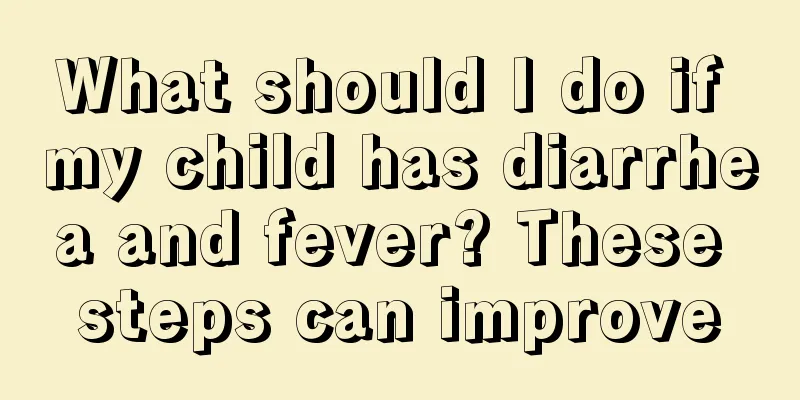Why does my child keep blinking?

|
Blinking is a normal physiological phenomenon, but when people blink frequently, it is likely caused by external stimulation. Many children are prone to the problem of frequent blinking. Generally, parents must pay attention to this situation, as it may be caused by eye problems. Also, when a child blinks frequently, you should pay attention to observe abnormalities in the eyes. So why does the child blink frequently? 1. Eye inflammation Eye inflammation can also irritate children and cause them to blink frequently. The most common ones are conjunctivitis, keratitis, etc. caused by infections such as bacteria, viruses, and chlamydia. In addition to causing children to blink more frequently, inflammation can also cause symptoms such as redness and itching of the eyes, increased secretions, and tearing. Viral keratitis often occurs after a cold or fever. The child suddenly starts blinking frequently, and may have symptoms such as red eyes, tearing, and photophobia (fear of light). There may also be no other eye symptoms, but examination under a slit lamp may reveal lesions infiltrating the surface of the black eyeball. 2. Image stimulation Television image stimulation is caused by the flickering and rapid changes of the television screen, which leads to over-excitement of the child's visual center. This is caused by the frequent contraction of the nerve fibers that control the orbicularis oculi muscle after being stimulated. If this happens, active treatment is required. Habitual blinking Some children have no eye problems but just like to blink. This is a bad habit. Parents should remind them in time to help their children control themselves and overcome the problem of blinking. Some children have a history of frequent blinking. Even after the cause has been eliminated through treatment, they still continue to blink frequently, resulting in habitual frequent blinking. Parents should remind their children in time to help them exercise self-control and overcome the habit of frequent blinking. 3. Inverted eyelids Some children are fat and have thick subcutaneous fat on their eyelids, which causes entropion and trichiasis, or idiopathic entropion and trichiasis. Because the eyelashes touch the cornea or conjunctiva, there is a foreign body in the eye and a stinging sensation, which causes children to squeeze their eyes frequently. Some children are born with inward turning of their eyelids (medically known as blepharoplasty), which causes their eyelashes to fall on the surface of the eyeball, irritating the cornea (the black surface of the eyeball) and causing tearing and frequent blinking. |
<<: The reason why children have transparent blisters
>>: How to deal with urticaria in children
Recommend
Baby's body temperature range and precautions when measuring body temperature
The baby's body temperature range has always ...
What to eat for babies with severe anemia
Anemia is a very common disease. It usually occur...
Symptoms of vomiting and dehydration in children
If a child vomits, parents must pay attention. Th...
How to treat a child with a high fever of 39 degrees?
Many children have high fever problems, which ser...
Baby loves to sweat, what's going on?
Although sweating is a very common thing, it actu...
What are the symptoms of school phobia?
When school starts, many students will feel like ...
What's wrong with a five-year-old baby's astigmatism?
With the improvement of modern human living stand...
How to protect children's teeth
In our daily life, we always see many children wi...
What medicine should children take if they catch a cold and have a fever?
The weather outside is sometimes good and sometim...
Does genetic metabolic disease make sense at the age of 3?
Genetic metabolic diseases are a type of disease ...
What happens when a child's new teeth grow out but the old teeth do not fall out?
The most impressive thing about children in the p...
What to do if your baby can't digest the milk powder
At the beginning, parents know nothing about taki...
Black spots in the child's eyes
Many people know that black spots on children’s e...
The severity of hemangioma on the baby's head and the treatment of hemangioma
Every child is an angel to his or her parents and...
What should I do if my child has indigestion and gets angry?
Young parents will make many mistakes when feedin...









